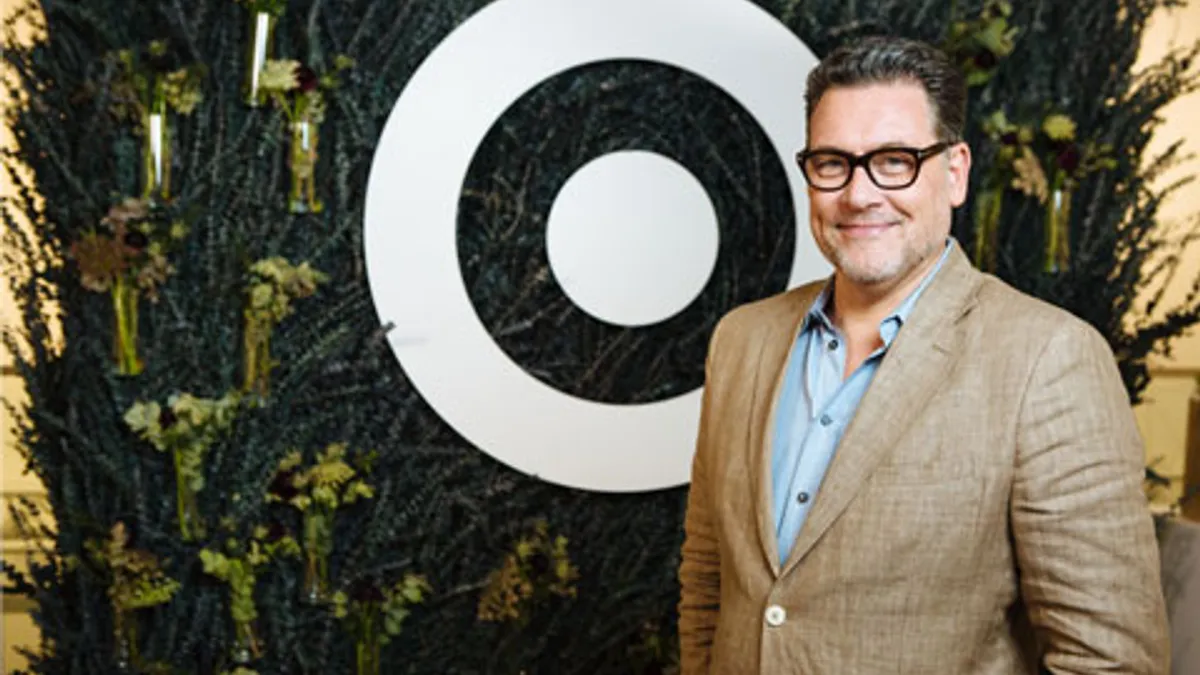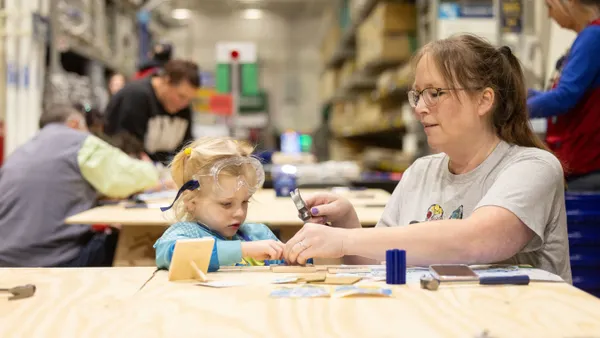Dive Brief:
-
Target on Saturday announced that four new private label brands will hit the racks this fall — A New Day, Goodfellow & Co., JoyLab and Project 62 — according to a company blog post and an exclusive interview with The Wall Street Journal.
-
The brands, just a few of the 12 private label lines to roll out over the next 18 months, are being marketed as lifestyle brands that aim to create an emotional connection with shoppers and they hit on key category trends, such as athleisure, trendy home decor, women’s classics and modern menswear.
-
The move is part of Target’s broader effort to rethink its brand assortment and will include shedding stalwart brands such as men’s and women’s Merona brand and men’s Mossimo line, which have grown too homogenized for consumer tastes, executives told the Journal.
Dive Insight:
Private label brands that emulate it’s “cheap chic” reputation have become a huge differentiator for Target as it creates a “fresh interpretation of Tar-zhay,” EVP and chief merchandising officer Mark Tritton wrote in a company blog post. Amid a fierce price war with Walmart and Amazon, unique lifestyle brands are key for retailers hoping to stay at the top of consumer's minds.
To Tritton, brand reinvention at Target is about forging into the spaces that consumers demand not just now, but also in the future. “[I]t’s not just about creating a great product assortment — it’s how we bring the brand to life for our guests in stores, digitally and in our marketing, so that at every touchpoint, our guests understand that this brand’s not just new — it’s created especially for them,” he said, touching on the experience factor of the new brands.
Apparel and home decor are where the big-box retailer has been leveraging its efforts most, which makes sense considering earlier this year outgoing CFO John Mulligan said the categories account for about $26 billion in sales. The categories are also where the company has thrived. To launch the new brands, Target is using the same research and design approach used for its successful kids apparel and home decor brands: Cat & Jack and Pillowfort, respectively.
Apparel collections touting celebrity partnerships have also helped differentiate the retailer’s merchandise of late. It’s tie-up with British singer Victoria Beckham in April broke online sales records for the retailer’s design partnerships without the attendant frenzy that irritated customers in past collaborations, notably its 2015 Lilly Pulitzer effort. Home decor, and to a lesser degree smart home products, have also become winning categories.
The fruits of Target's big $2 billion investment this year are just beginning to show. In addition to creating new and renovated stores with the capital, Target is also installing a merchandise designer at all stores in order to ensure that layouts are maximizing its appeal. The company will use about $1 billion of operating profits this year to improve brick-and-mortar and digital operations.















